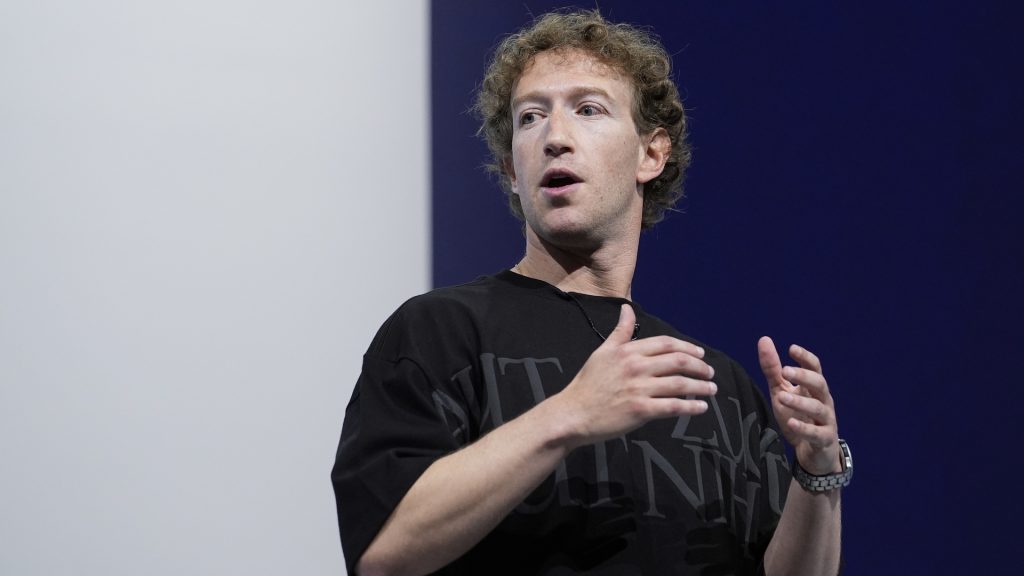Meta’s next step: Starting a company to buy and sell power for its data centers

Meta is taking another step into the energy industry. A new Meta subsidiary recently filed an application with federal regulators to trade wholesale power on the electric grid.
Atem Energy LLC, a company wholly owned by the tech giant that also owns Instagram, Facebook and WhatsApp, filed with the Federal Energy Regulatory Commission on Sept. 16. If approved, the company will be able to buy and sell electricity on the open market, allowing it to better manage its energy consumption.
As Big Tech grows hungry for power to fuel data centers that make artificial intelligence tools possible, Meta has already made big energy moves. The company has inked deals with nuclear power companies and signed contracts to buy renewable energy.
Three new gas power plants won approval from state regulators in Louisiana to power a Meta data center. With vast energy resources under contract, experts see Meta’s move into wholesale power trading as a logical next step.
In an interview with Straight Arrow News, Paul Joskow, an economics professor at the Massachusetts Institute of Technology, said Meta “realize(s) that they’re going to be big players in the electricity supply business,” and the move into wholesale power trading “gives them some flexibility.”
What is a wholesale power trader?
The wholesale electricity market is where companies that generate electricity — from nuclear, gas and coal plants, wind and solar farms, or any other power source — sell that power to electric utility companies. Markets have structures and rules organized under a regional grid operator.
Some states allow retail choice, which enables consumers to choose an electric provider, rather than having to stick with one state-backed utility company. Other states require customers to be locked into a single regulated utility company for their power.
“Day by day, we have a peak and a trough in our power demand,” said Ed Hirs, an energy economist at the University of Houston. This oscillation causes costs to go up and down. Price also varies across geographic regions.
Power trading companies take advantage of price volatility by both buying and selling electricity. They cut deals between the power generation companies and utilities, a system that adds more liquidity and risk management to the overall market.
In states with retail choice, the wholesale power trading company can also be a retail electricity provider, or it can sell power to the retail company.
What are the benefits for Meta?
It’s “not surprising” that Meta is starting a wholesale power trading business, according to Joskow. The move could generate significant revenue for the tech giant, reducing overall electricity costs.
Electricity demand is surging. According to an estimate from consulting firm Grid Strategies, the U.S. will need 16% more power during peak demand periods by 2029.
Data centers are a major driver of increased demand. A single 100-megawatt data center operating at full capacity for a month can consume more electricity than 81,000 homes, a SAN analysis found.
Meta has numerous power purchase agreements with power-generating companies to acquire electricity for its fleet of data centers. These agreements lock in a set amount of electricity at an agreed-upon rate, outside the fluctuations of the wholesale market. Often, they are long-term deals.
Power trading helps Meta in “hedging their contractual commitments,” Joskow said, because if Meta does not need to consume all of the power it has agreed to buy, “they can sell it back into the market.” Meta can also buy wholesale power if it needs more.
This type of arrangement is not unusual. Microsoft, Amazon and Google are also already involved in trading wholesale power, according to reporting by Bloomberg. Other large electric users, such as Bitcoin mining companies or manufacturers with on-site power, also sometimes sell electricity to the grid.
As electricity prices rise across the country, Hirs said power trading companies have an opportunity to sell power they bought at a lower fixed rate when wholesale prices are spiking. “That’s money that the rest of us wind up paying,” he said.
Moreover, Hirs said, “the application of AI to trading electricity is fast and furious right now,” which would position Meta and other Big Tech companies to optimize when they buy and sell wholesale power with swings in the market.
Meta did not respond to SAN’s request for comment. The company asked federal regulators to approve its application by Nov. 16.
The post Meta’s next step: Starting a company to buy and sell power for its data centers appeared first on Straight Arrow News.





